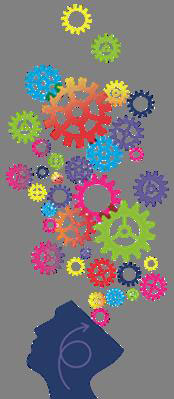Living and Studying with Autism
Fri, 20 Mar 2015 04:30:00 GMT
 Disability Services are marking Autism Awareness Week with a talk on Friday 27 March 2015. A group of students with autism or Asperger syndrome will be sharing their experiences of living and studying with autism and also answering your questions. Staff and students are invited to come along to this event at 12.00noon – 1.30pm in the Workshop Room in Student Central (SC4/24). You can also find out some information about the support offered by the University to students with autism. There will be tea, coffee, biscuits and fruit available at this event.
Disability Services are marking Autism Awareness Week with a talk on Friday 27 March 2015. A group of students with autism or Asperger syndrome will be sharing their experiences of living and studying with autism and also answering your questions. Staff and students are invited to come along to this event at 12.00noon – 1.30pm in the Workshop Room in Student Central (SC4/24). You can also find out some information about the support offered by the University to students with autism. There will be tea, coffee, biscuits and fruit available at this event.
Throughout Autism Awareness Week, there will be a stand in Student Central called Stand out for Autism with information about autism and the support available at the University. There are also some quotes from students at the University about their experience of autism and University studies. Please help yourself to any of the information and if you would like to follow up on anything you read, please contact Disability Services on disability@hud.ac.uk.
There is a training session open to staff at the University on Wednesday 1 April, from 9.15am to 12.15pm - ‘Working with Students with Asperger syndrome’. This session covers the features and impact of Asperger syndrome and examines some practical ways of working with students. If you are interested in attending, please book through the Staff Development Group, email: staffdev@hud.ac.uk Bespoke training on this topic is also available through Disability Services. Please contact them if you would like to discuss this further, email: disability@hud.ac.uk
Growing number of students with autism or Asperger syndrome
There are a growing number of students with autism or Asperger syndrome attending University which is fantastic and a great testament to those students who find strategies to deal with the challenges of University life.
Many people with autism who attend University have a high functioning autism or Asperger syndrome (AS), so this will be focused on. There are many ways in which this can impact on a person, and although some of them will be discussed, it’s vital to remember that the impact of autism is different for every student.
When we meet people, we can often tell how someone is feeling by their tone of voice, posture or facial expressions. People with autism or AS can find this harder or impossible which makes communication and social interaction difficult and exhausting. Many people with autism or AS find it difficult to understand social ‘norms’, conventions or unwritten rules. This can lead to increased stress or anxiety and in some cases, isolation.
Autism or AS can affect how people interpret information. Some people may tend to interpret information literally; some may find it hard to communicate if they are expected to understand nuances or implications. Sarcasm, jokes and puns can also make communication difficult.
Many people with autism or AS find it difficult to predict other people’s behaviour or to imagine situations that are outside their own experience. This difficulty with social imagination can also make it difficult to interpret abstract ideas or prepare for the future.
Other characteristics of autism and especially AS are a love of routine (or a dislike of change). People often prefer to have a pattern or routine to their day or the activities they undertake. A significant number of people with Autism or AS have a heightened sensitivity to things like smell, noise, movement, taste, touch or temperature. For example a background noise which could be ignored by people without AS may be distracting or even unbearable for someone with AS. It is not uncommon for a person with AS to have an absorbing or intense interest in a particular subject or object.







